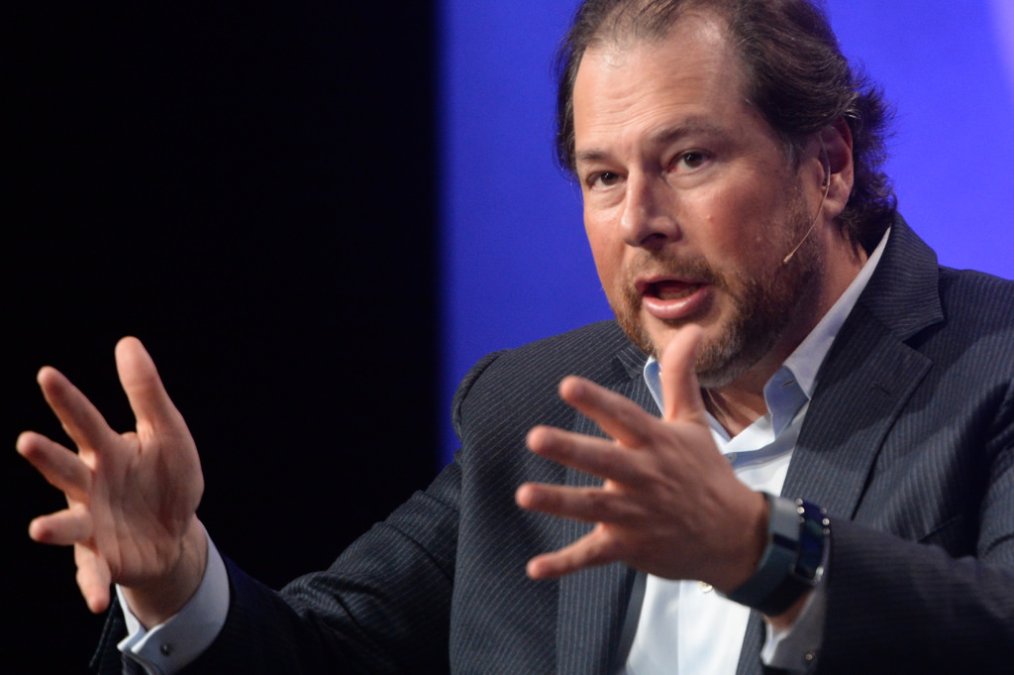In the next wave of the technology revolution, will your company or industry adapt to survive and even thrive—or get disrupted and swept away?
Three smart guys have some keen insights on what it takes to surf the wave, and why so many incumbent giants fail. Salesforce.com CEO Marc Benioff, AOL co-founder Steve Case and academic provocateur Vivek Wadhwa held forth in a panel I moderated last week at the Milken Global Conference; their views should resonate for months to come.
This summary is divided into four major themes, spread across three posts. A picture is worth a thousand words, but this three-part column handles thousands of pictures in 1,800 or so words, combined. Read ’em and reap.
THEME #1: The Beginner’s Mind
Companies that lead in one phase of the tech revolution end up faltering later because they lose what Marc Benioff calls “the beginner’s mind.” They start out young and fresh-faced, willing to consider almost any direction or action. As they mature, they get less open and spontaneous and focus more on protecting than on innovating.
The question becomes, “Are you going to be that innovator again?” Benioff says. “The ones who are getting in trouble are the ones who lose that beginner’s mind.”
This is what befell Microsoft, whose stock price went virtually nowhere in a decade, despite the company’s success at preserving an overwhelming share of the market for PC software. “I think that if you’re a Microsoft shareholder over the last ten years, you think it’s a failure. The reason why is because they just kept their mantras too long,” says Benioff, an imposing, super-sized presence.
Microsoft’s mantra: “Windows Everywhere.” “That was very important to them,” he says, “but they didn’t get rid of that mantra fast enough. They lost their beginner’s mind. You can’t just keep repeating those mantras over and over again for 10 or 20 years, as if the world hasn’t’ changed.”
What about Salesforce.com’s founding mantra: “The End of Software”? “Well, we didn’t use it in this panel,” Benioff says. “We’re more about, ‘Run your business from your phone’ now.” The company’s website opens with a close-up of a smartphone.
THEME #2: Attacker or Defender?
AOL progenitor Steve Case gave an incisive explanation for what went wrong at his pioneering company. “We started as a disrupter, we started as an attacker. We shifted from being an attacker to being a defender. Brands are divided into these two camps, attackers and defenders,” he says.
It took America Online nine years to get to the first one million subscribers, and in the nine years after that, the rolls soared to 25 million “because we embraced the Net and saw it as an opportunity, not a threat,” he adds.
But, eventually, a market leader loses that edge and that willingness to embrace risk. “Executives are trained by business schools to manage risk. Entrepreneurs are not,” Case points out.
Benioff chimes in: “If the groupthink in your company is that you’re a defender, you’ve got a problem.”
Case: “And nobody says they’re a defender.” Execs speak, instead, of “maintaining market share” and “enhancing shareholder returns.” Code for not taking enough risk to stay out in front of those who are bent on disrupting you.
Facebook recently paid the jaw-dropping price of $19 billion to acquire What’sApp, an overseas texting service with half a billion users who pay all of a dollar a year; and $2 billion to buy Oculus, a maker of virtual-reality goggles that hasn’t yet sold a single commercial product.
Those deals may look like bold “attacker” moves at first glance, but Case says they aren’t that at all. “Those are defensive moves, not offensive,” he argues. Facebook decided “we’re going to give 10% of our company to these guys because these guys could become us guys down the road.”
Up next: Part 2, Incumbents vs. Upstarts: http://bit.ly/1mDa2Fm
Part 3: What’s an Incumbent to Do? http://bit.ly/1orb4RC
Click here for video of the full panel on Internet destruction: http://bit.ly/1j2UdiR
